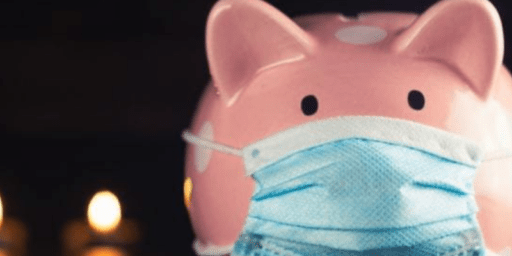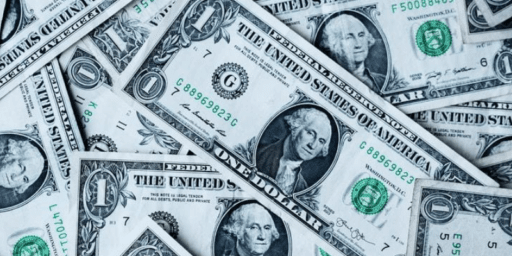Reader Mail: Should I Sell or Hold during Stock Mergers/Acquistions?
The big financial news in Canada these days is that Burger King is acquiring Tim Hortons in a cash and stock deal worth $12 billion. When big events like this happens, I typically get a number of emails on the topic, this time around, readers are wondering what to do with their shares of Tim Hortons (THI).
Background
While there are many types of mergers and acquisitions, in this case, Burger King is a publicly traded company that is in the process of acquiring another publicly traded company. In some cases, the acquiring company will offer straight cash which they will finance by issuing more shares, or obtaining debt. In other cases, the acquiring company will simply offer shares in exchange for buying out the outstanding shares of the company to be acquired. In this situation, Burger King is offering cash plus shares to THI shareholders. More specifically, for each share of THI, the deal is $65.50 cash and 0.8025 common shares of the new company formed.
So how does this affect existing THI shareholders? Owners of THI shares have a choice, either to wait until the deal is completed to take $65.50 cash and 0.8025 shares of the new company per share of THI held, or sell their THI shares in the open market before the deal closes.
Holding During a Merger/Acquisition
As a shareholder of THI, lets take a look at my situation. Say that I own 100 shares of THI, if I hold until the deal closes, I get $6,550 in cash and 80 shares of the new Burger King/Tim Hortons company. While getting shares of the new company may potentially be great investment, it has uncertainty as Burger King doesn’t have the same brand power as Tim Hortons (at least not in Canada).
Selling Your Shares
What if I want to cash out of the deal now? As with most acquisitions, the share price of the company to be acquired usually spikes to close to the acquisition price. In this case, THI traded around $63 (on NYSE) the day before the merger announcement and rocketed to $82 after the acquisition details were released. Selling my 100 shares will net me $8,200 cash, rather than getting a portion cash and another portion in shares of the new company.
What Did I Do?
I sold my shares in the market and took the cash. If I like what I see when the new company forms, I may reconsider it then. As well, since the shares were in my TFSA, it was an easier choice since capital gains are sheltered. Taking the cash and stock deal would be more attractive in a taxable account as it would help defer some of of the taxable capital gains, but in this case, I likely still would have made the same choice.
What do you typically do when a publicly traded company that you own becomes acquired?










re: “I like having the certificates; it makes me feel like a real owner of the business”
While you may not be a “real owner” of the business, holding certificate makes you a very real owner of the stock. You might be one of the few.
Unless otherwise directed, stocks are legally registered under the name of (most likely) your broker, meaning you legally own nothing. You gave up ownership in favour of speed and ease of trading. And don’t fool yourself into thinking your vote defines ownership; unless you own 10%+ of any issue, you are not an owner.
By holding ETFs you literally own no company whatsoever.
(Your new BCE should treat you well!)
While I don’t hold THI, I do hold BA (Bell Aliant) which is finally being bought out by BCE. I plan to hold because even though 99% of my investments are in ETFs, I have several individual Canadian stocks as well. I like having the certificates; it makes me feel like a real owner of the business :) and I have wanted to hold BCE for a while now!
It’s so tough to tell. I’m generally a buy and hold guy so I enjoy the merger pop and then let it ride!
Jay
re: “Burger King is a publicly traded company that is in the process of acquiring another publicly traded company.”
In the media, yes; in actual structure no. Both Burger King and Tim Hortons are now owned by 3G Capital, a private equity group.
(Warren Buffett is also an owner.)
re: “While getting shares of the new company may potentially be great investment, it has uncertainty as Burger King doesn’t have the same brand power as Tim Hortons (at least not in Canada).”
It’s not about the branding power, it’s about what the acquiring entity can do to increase the value of Tim’s, as it did with Burger King (e.g. tripling profit margin in four years; BKW stock is up 80% over the last two years, discounting the THI deal). I highly doubt we will see any Tim’s/Wendy’s-style mash-ups with this new buy-out. They are still two very separate companies.
It’s about the new Tim’s making more money than the old Tim’s.
In this deal, I would have held.
Since I’m mostly in index funds, I don’t think I’ve ever held a company that has gone through a merge or acquisition. I have owned a couple that have basically gone under though (bad luck for a mediocre investor I guess!).
However, if that does ever happen to me I think I will take a similar approach to you and sell unless I really like the prospect of the new company being formed. There’s often a dip in share price shortly after a merger takes place too so that could be a good time to buy in again. Might as well consider all your options after making big gains like that.